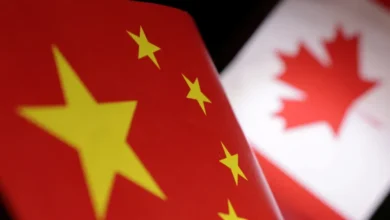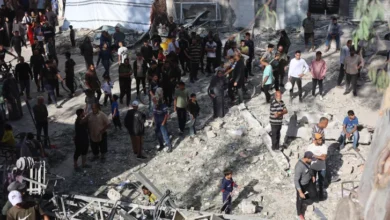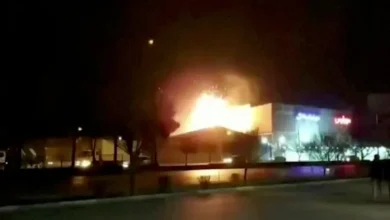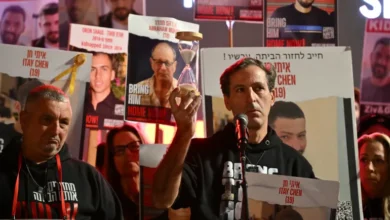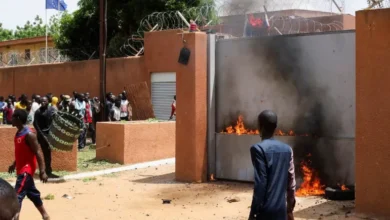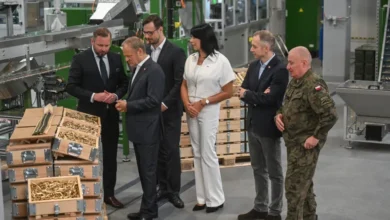Has Yemen’s government been sidelined after Saudi-Iran deal?
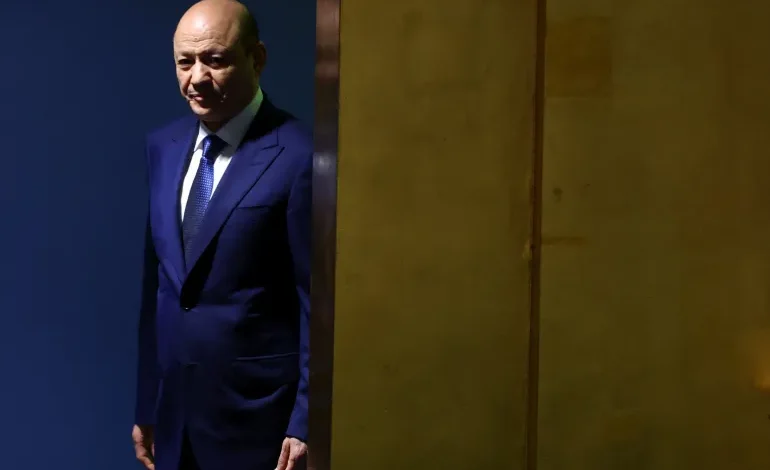
The Saudis are talking to the Iranians. Yemen’s Houthi rebels are talking to the Saudis. And the Yemeni government? Well, it does not seem to be talking to anyone.
Or at least that is the impression as months-long negotiations between Saudi officials and the Houthis are rumoured to be bearing fruit. This notion gained new impetus last week when Saudi Arabia and Iran agreed to restore relations. Tehran has said it supports the Houthis politically but denies sending them weapons, as alleged by Riyadh and others during Yemen’s long-running war.Details are scant of any potential deal between the Houthis – who have been fighting the internationally recognised Yemeni government since 2014 when they seized the capital, Sanaa – and Saudi Arabia, which has led a military intervention in support of the government since 2015.
Some talk of a full Saudi withdrawal from Yemen being on the cards; others broach the possibility of a new ceasefire to formalise the current, relatively frozen nature of the conflict.Whatever the case, the government and other local actors on the Saudi-led coalition side, including the separatist Southern Transitional Council (STC), point to a problem: During the latest round of negotiations, they feel like they are on the outside looking in, with little influence.
Just look at recent comments made by anti-Houthi figures in Yemen.
Amr al-Bidh, an STC official and the son of the last president of South Yemen, said the group’s “friends in Riyadh [had] isolated everyone”, adding that it would lead to “scepticism among friends and stakeholders”.
Another comment from al-Bidh was even more telling: “If [the negotiations between the Saudis and the Houthis are] regarding the truce … that is fine. … But if it goes more deeply than that and we are not part of it, it is a matter of concern for us.”The STC is one of the primary forces on the ground in Yemen. It is backed by the United Arab Emirates and is in de facto control of the temporary capital, Aden, but it has little knowledge of what is being said behind closed doors.
The government appears to be in the same boat with one official telling The Associated Press news agency this year that he was worried about what concessions could be made to the Houthis.Proxy forces or independent actors?
Yemeni President Rashad al-Alimi has sought to allay fears that the government is being sidelined – and potentially abandoned – by Saudi Arabia by insisting that he supports the current talks. He said they are merely paving the way to future negotiations between his government and the Houthis.
But those who see the current talks as evidence of the impotence of Yemen’s anti-Houthi forces point to the murky circumstances of al-Alimi’s own accession to the presidency, which came as a surprise in itself, with little prior indication from former President Abd-Rabbu Mansour Hadi that he was on his way out.
Instead, Hadi resigned in April last year after Saudi Arabia withdrew its support for him.
However, the absence of the Yemeni government and the STC from the negotiating table should not be taken to mean that they lack their own agency.
Often painted, along with the Houthis, as proxy forces for outside powers, each party has its own goals and interests and will not simply acquiesce to a “final deal” that does not serve its objectives.
What can appear to be subservience to external actors is more a result of a need for that support on the battlefield – but they can still try to press on without that backing.
It will, therefore, ultimately be necessary for all groups to be included in the next stage of negotiations, rather than simply being brought along to rubber stamp a pre-arranged agreement, because it should not be taken for granted that a Saudi withdrawal from Yemen will put an end to the fighting there.
